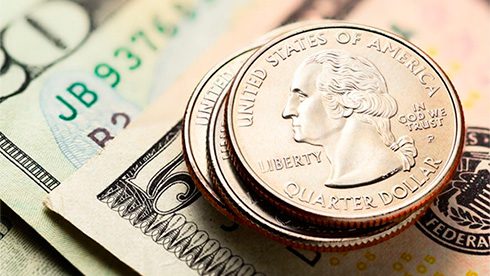
US dollar is stable against the euro, strengthening against the yen and the pound sterling on Friday.
The ICE-calculated index, which shows the dynamics of the dollar against six currencies (the euro, the Swiss franc, the yen, the Canadian dollar, the pound sterling and the Swedish krona), adds 0.03% during trading, the broader WSJ Dollar Index loses 0.02%.
The data of the US Department of Labor published the day before showed a weaker-than-expected slowdown in inflation. The CPI rose in September by 8.2% against the same month last year – the lowest rate in seven months. Experts polled by Trading Economics predicted, on average, a slowdown in inflation to 8.1% from 8.3% in August.
Meanwhile, core inflation, excluding the cost of food and energy (Core CPI) accelerated in September to the highest since August 1982 6.6% in annual terms from 6.3% a month earlier.
Published statistical data have strengthened investors in the opinion that the Federal Reserve System (Fed) will continue the rapid tightening of monetary policy. Now traders are waiting for a sharp rise in the rate of the US Central Bank at each of the two remaining meetings of this year, Bloomberg notes.
The euro/dollar pair is trading at $0.9781 compared to $0.9780 at the close of the previous session.
The US currency against the yen is 147.45 yen against 147.22 yen at the close of the market on Thursday.
The pound fell to $1.1322 from $1.1331 the day before.
British Treasury Secretary Kwazi Kwarteng left Washington, where he was meeting with representatives of the International Monetary Fund (IMF), a day earlier than planned. Experts believe that he may abandon part of the tax cuts he announced earlier in order to prevent an economic crisis in the country, the Financial Times writes.
The newspaper’s sources note that the IMF and finance ministers of several other countries recommended that he quickly abandon plans for tax cuts in order to avoid financial problems in the economy.